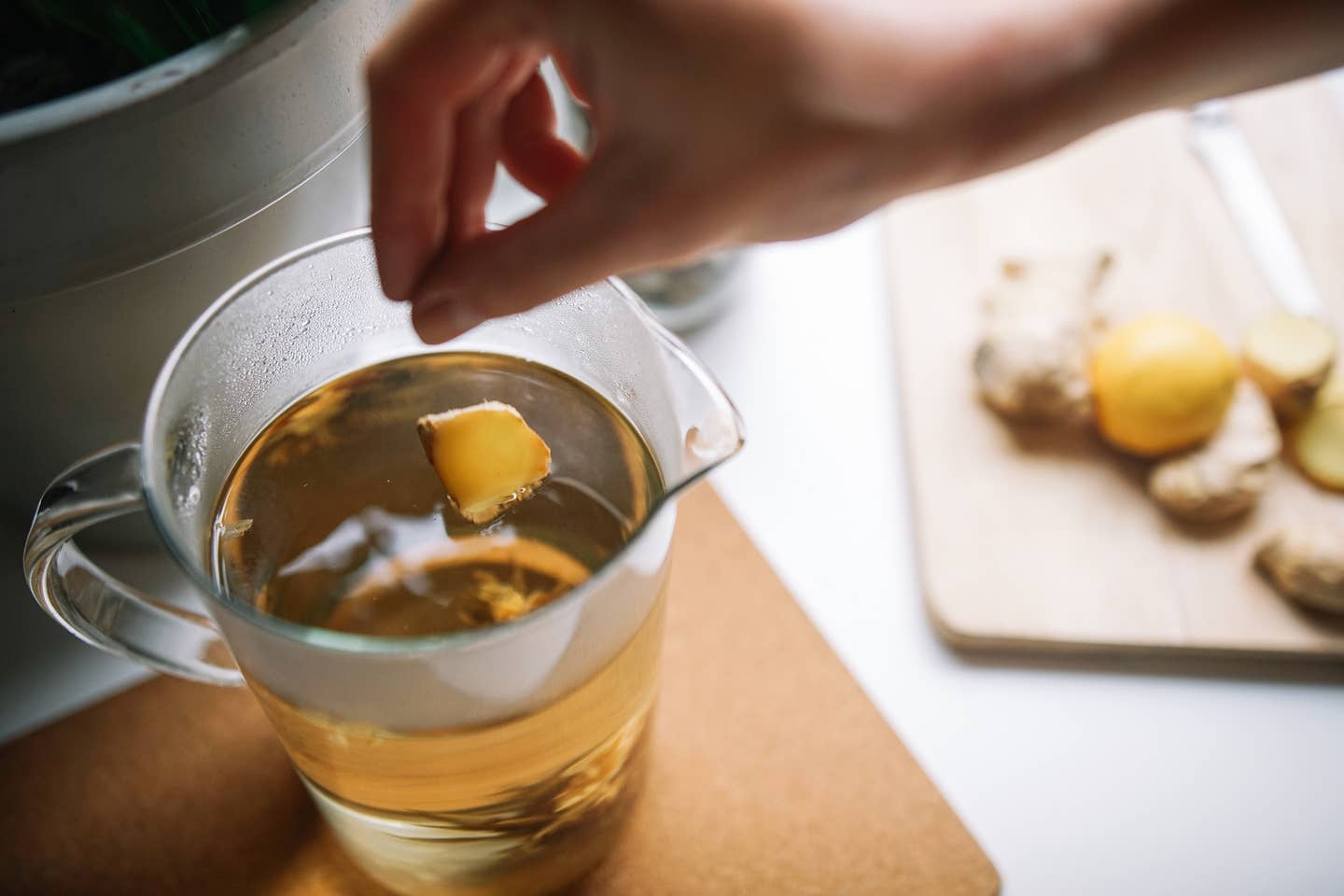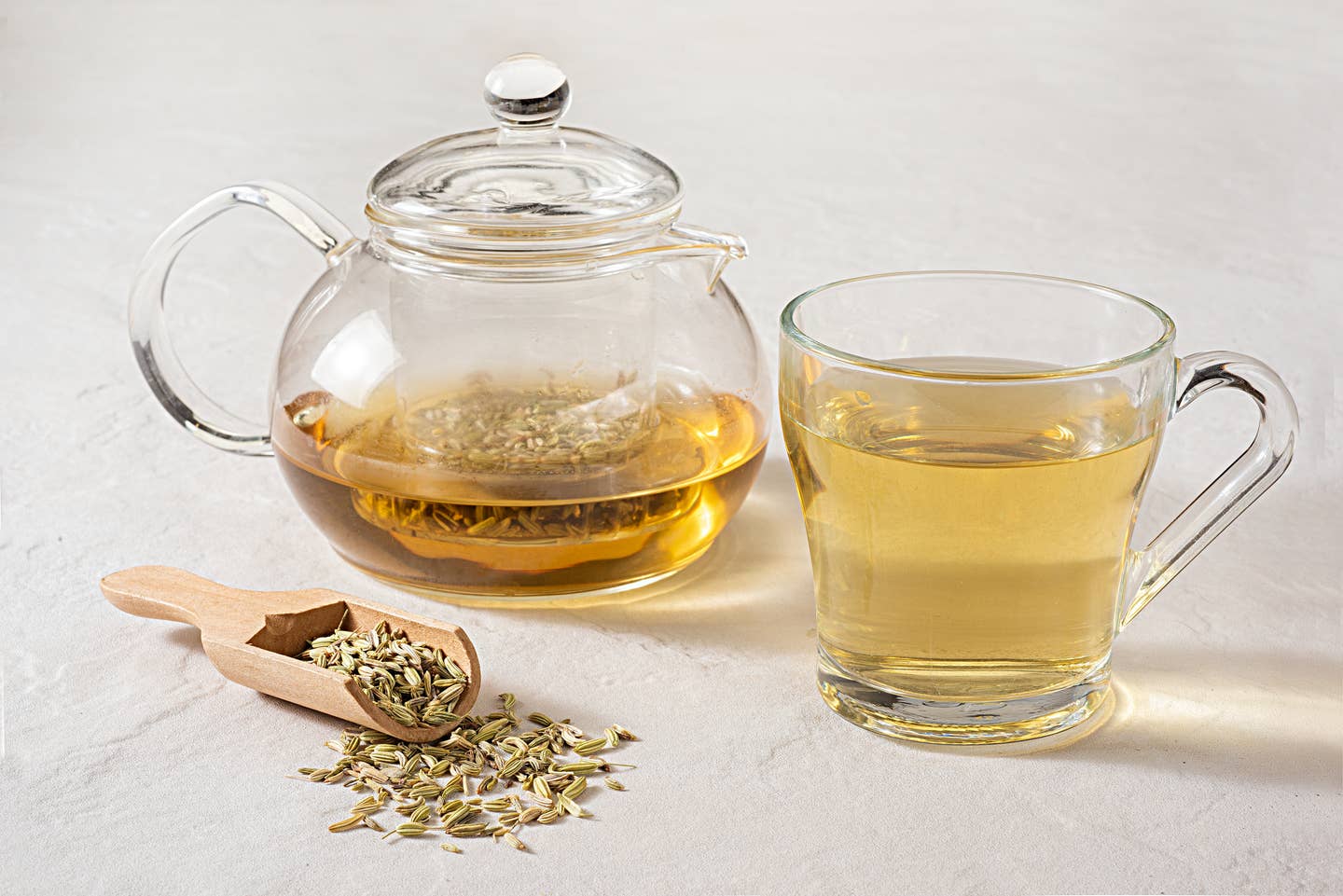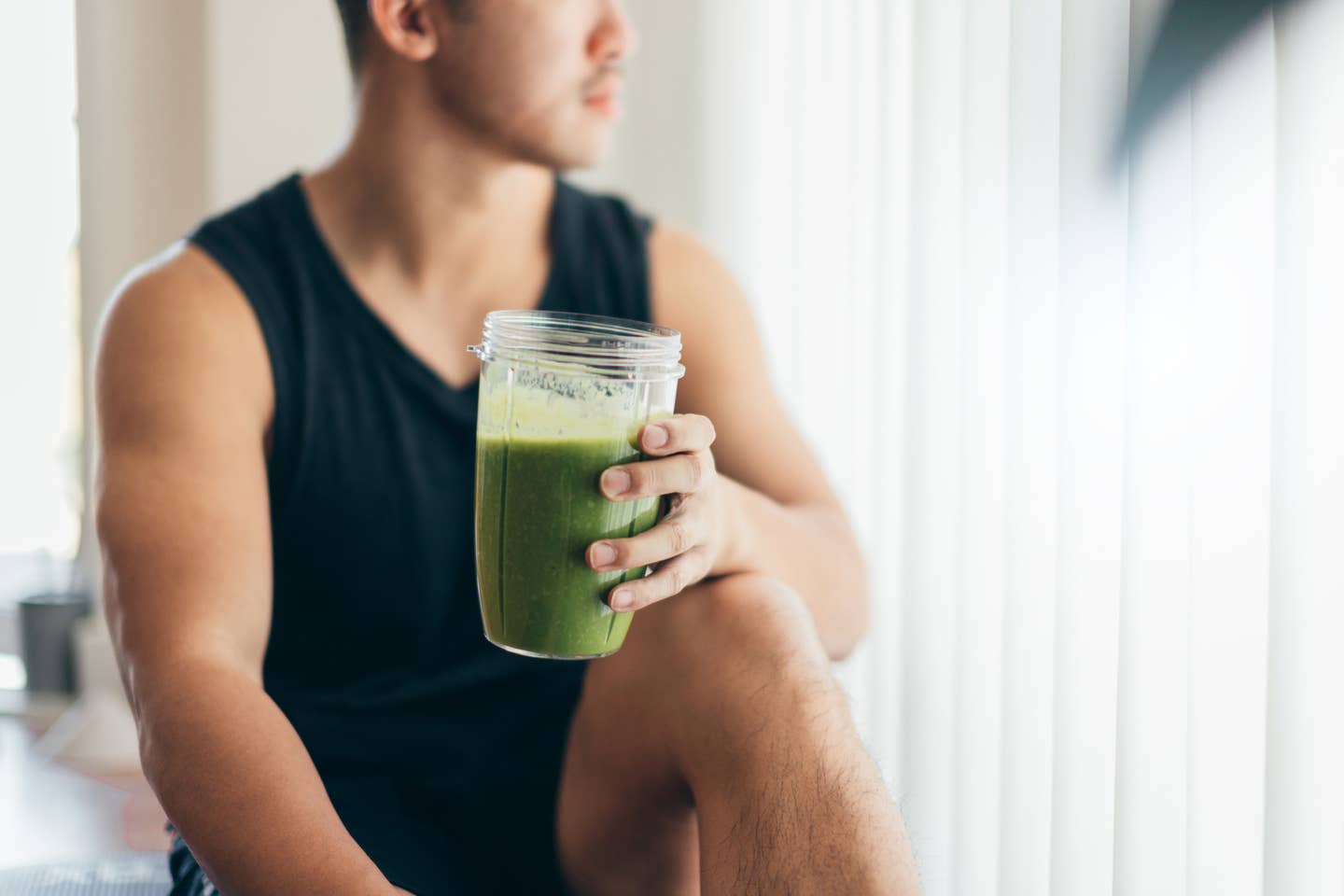
The 9 Incredible Health Benefits of Ginger and How Much to Eat
If ginger is something you eat only when you order sushi, you’re missing out. While foods like kale and blueberries might be the first thing you think of when you hear the word "superfood," ginger ranks high on the list of small foods with big benefits, and it’s long been used in different cultures for its medicinal properties. Ginger is packed with health benefits that include relieving nausea, fighting inflammation, helping digestion, and more.
That’s because this aromatic herb that comes from a flowering plant contains gingerol, a powerful phytochemical which gives ginger its spicy flavor. “While you would have to eat large amounts of kale or berries to gain nutritional benefits, these small components in ginger are effective in very small amounts,” says Charlotte Traas, board-certified master herbalist and director of education for New Chapter, Inc., in Brattleboro, Vermont.
The Health Benefits of Ginger Root
1. Ginger and Digestion
In Traditional Chinese Medicine, ginger is classified as a "yang” herb, helping to warm the body, and is traditionally used for supporting the digestive system. “The digestive system is at the root of your whole health so supporting healthy digestion is a great way to balance your overall health,” Traas says.
2. Ginger and Blood Sugar
Numerous studies have been conducted on ginger’s ability to aid with blood glucose control. For instance, an analysis from the journal Medicine found that people with type 2 diabetes experienced significant improvements in HbA1c levels while taking ginger. Researchers suggest that ginger may even help with long-term blood sugar control.
3. Ginger and Chronic Disease
Ginger contains powerful antioxidants that aid your body in numerous ways. Sun exposure, pollution, cigarette smoke, and even exercise can increase free radicals in your body. “Being inundated by free radicals is a natural process, but when they become overwhelming, it may have an effect on your body,” Traas says, adding that unless those free radicals are quelled by antioxidants, they can leave a path of destruction in your body.
Enter ginger, which may help prevent diseases like cancer, cardiovascular disease, and diabetes, according to a study in the journal Molecules.
4. Ginger and Weight Loss
Ginger for weight loss? Don’t think this means you can ditch that online gym membership or stray from your plant-based diet, but a review from the Annals of New York Academy of Sciences reveals that ginger is linked with weight loss in overweight adults. The potent spice apparently not only reduces hunger pangs but also enhances calorie burning.
5. Ginger and Migraines
Ancient medicine has often used ginger for headaches, and there may be a good reason to believe it can work for migraines. In a study from Phytotherapy Research, researchers put ginger to the test against sumatriptan, a common migraine drug, and in the words of Michael Greger, M.D., founder of NutritionFacts.org and author of How Not to Die, “ginger won.” Not only is ginger significantly cheaper than the drug, but it also came with fewer side effects. Just an eighth of a teaspoon of ginger mixed with water did the trick in lessening or eradicating migraines.
6. Ginger and Pain
When training for running events, Traas will often incorporate ginger to help support her body’s recovery. Why? There’s research associated with ginger’s ability to reduce pain after exercise and support healthy inflammation balance in the body, she says. Case in point: A study from The Journal of Pain showed that consuming ginger daily in the form of capsules with raw or heat-treated ginger reduced muscle pain from exercise by 25 percent.
7. Ginger and Nausea
Ginger has long been touted as a cure for tummy issues. Travelers, for instance, have used ginger to aid with seasickness and motion sickness from cars. And there is compelling research to suggest that it can aid nausea. In a study from Integrative Medicine Insights, researchers write that the “best available evidence demonstrates that ginger is an effective and inexpensive treatment for nausea and vomiting and is safe.”
8. Ginger and Menstrual Cramps
Women who have trouble with menstrual cramps may want to add one-eighth of a teaspoon of ginger powder to their diet three times a day, writes Greger in his book How Not to Die. Doing so helped decrease the level of pain from menstrual cramps, according to this study from Pain Management Nursing in which women took the ginger for four days starting with the day before their period.
9. Ginger and Bad Breath
No breath mints on you? No worries – just sip some ginger tea. In this study from the Technical University of Munich, ginger tea helped eradicate bad breath within just a matter of seconds. Researchers explain that gingerol stimulates an enzyme in your saliva that breaks down nasty-smelling compounds, including even coffee breath.
How Much Ginger Should I Eat?
There’s no “should” when it comes to ginger, as it’s not part of any dietary recommendations per se. But in the world of herbal medicine, “more is not always better when it comes to herbals (like ginger),” Traas says.
Simply start by adding a little fresh or ground ginger to your daily diet. Jamie Feit, M.S., R.D., a dietitian in White Plains, N.Y., and expert at Testing.com, has all of her clients start the day with a beverage she calls morning mojo, warm water mixed with lemon and fresh ginger. Although ground and fresh ginger are both good options, “it’s been found that ground ginger has higher concentrations depending on how it’s dehydrated, she says.
Whether you chop it into a stir fry or add it to hot tea as Traas loves to do, start small and know that adding it to food can help if you’re not used to spicy foods. Just don’t go overboard, as excessive amounts can cause stomach upset, Feit says.
You can also take a ginger supplement, which Traas, who is affiliated with a supplement company, says is a way to make sure that not only is the dose consistent but so, too, is your usage. “You can easily incorporate it into your day without having to find ways to sneak it into your diet,” she says.
Want to learn about more healthy foods that can help boost your immune system and overall health? Check out our guide to 15 immune-boosting foods.
More From The Beet






